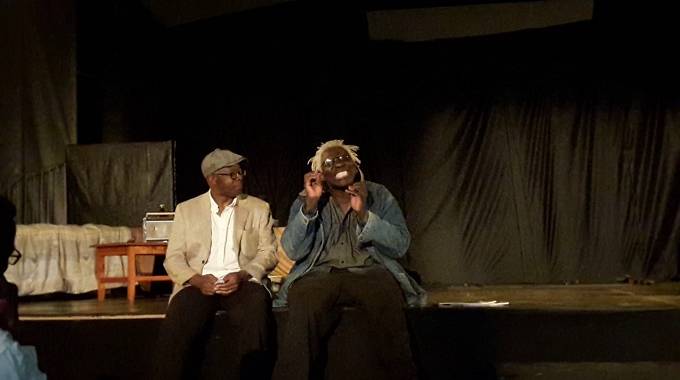
The Sunday News

Charles Dube
LAST week we got an insight into the revolutionary spirit which was enveloping the country, Rhodesia, by then. The people were rebelling against the colonial regime deemed oppressive and racist among many other grievances. The public was being mobilised for a strike.
They were marching into the city because somebody had been killed the previous night. We get a feel of the war tendencies as we read this story. There are a lot of counter accusations when there are politically motivated disturbances, one party accusing the other of selling out to the other.
The truth of these counter accusations remains a mystery, save to say that many people lose lives because somebody has lied about them. People are driven by emotions which overpower reasoning leading to unnecessary killings. People do not always agree on one thing. When Clopas is called to come out and join the strike he turns down the invitation. There is conflict between the church and the revolutionaries. Clopas is blunt in his response: “We can’t join your strike. We are church people.
Children of God.” According to Clopas, engaging in strikes is unholy and ungodly. But, in the circular world he is regarded a sell-out. A voice clamours: “Sell -outs! Sell-outs!” when he refuses to join the strike.
However, Clopas is adamant and stands for his religion: “We don’t do politics. We are children of God.
We fight the devil, not people in political parties. God will change things in this country when He wants, in His own time.” It is clear here that the church is against violence in settling political scores, yet, on the other hand radicals are for violence.
Radicals were opposed to people going to church during the war because churches tended to pacify the people and made them accept their condition in the hope that through prayer, God, the Almighty, will come to their aid and remove the oppressive authorities with time.
This echoes what we find in George Orwell’s Animal Farm, where Moses the raven always came to the farm and talked about a place called Sugar Candy Mountain, that happy country where poor animals, including himself would rest for ever from their labours. He even claimed to have been there on one of his higher flights, and to have seen the everlasting fields of clover and the linseed cake and lump sugar growing on the hedges.
This gave the animals hope that they would live happily thereafter despite all the problems and oppression they were getting on the farm. All what Moses said was to pacify the restless animals in the farm. In our current text Clopas is reminded that they are all children of the soil. They are one people, children of Dzimbabwe.
All is not well as sounds of breaking glass and crashing of rocks is heard. There are shouts of “Sell-outs” everywhere. The situation is volatile and Clopas is heard telling his children to stay where they are as they could not go to church on that day. Shamiso instructs Benjamin to bolt the door and make sure the younger ones, Esther and Peter stay in with him.
They should not go out. Clopas tells them that they will be back after the service. When Clopas and Shamiso have left for church, a piercing scream of a child is heard calling Muchaneta. The latter finds out that Benjamin has cut off Peter’s leg. The mystery surrounding Peter’s disability is solved.
We have been wondering as to what caused Peter’s disability. We only remember that the mention of it brought acrimony between Benjamin and his mother Shamiso when he returned from the war. Nobody revealed the details of what happened till now.
From the bit we get it was purely accidentally as we hear that Benjamin was chopping wood with an axe.
But Esther is interrupted by Muchaneta who screams before Esther could give all the details. On enquiring about the whereabouts of Shamiso and Clopas, Muchaneta hears that they both went to church. Seeing the amount of blood oozing from Peter’s wound she instructs somebody to call an ambulance.
When Clopas hears about the incident he is distressed and this is made clear through actions he does to an imaginary Benjamin. He is ominously stroking his left palm with a cane. With every “whack” he hits out at the bum of an imaginary Benjamin. This emphasises his anger towards Benjamin.
We imagine what he would have done to Benjamin if he had got hold of him? But there is a striking statement uttered by Clopas when he beats up the imaginary Benjamin. He says: “Tell the truth, Benjamin! Only the truth shall set you free.” This is a Biblical allusion showing that even in anger Clopas still remembers the word of God. Clopas is in a serious mood such that his wife Shamiso and Muchaneta come in pleading with him to stop battering Benjamin.
Clopas is of the view that it was the devil working through Benjamin and the demons in his mind.
Harvest of Thorns Classic: A play by Shimmer Chinodya. For views link with [email protected]/ or sms to 0772113207.



